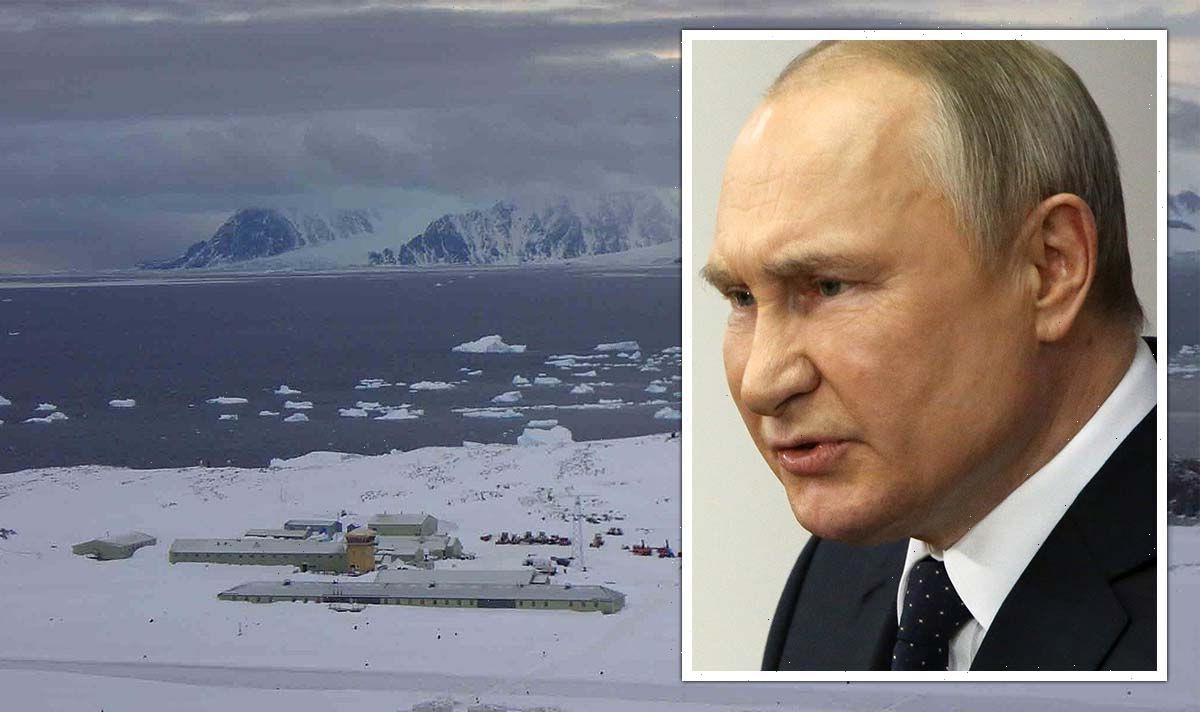Catherine Tait is unusually open and candid for the head of a major public broadcaster. She’s also not afraid of whimsy — at one point in an exclusive chat with Deadline stopping mid-sentence to exclaim the beauty of a hummingbird that’s flown onto windowsill of her LA hotel room.
The exec is President and CEO of CBC/Radio-Canada — meaning she oversees by the far the biggest and most influential broadcaster in Canada, a territory tied to the U.S. entertainment business like no other.
To differentiate from the giant to the south, Canada has successfully created its own broadcasting and production market using various tax incentives and production treaties that have attracted overseas investment. However, the arrival of Netflix, Amazon and the studio-owned global streamers has created a major challenge — producers now have more options for their wares and many are securing premium deals, meaning fewer projects are available. At the same time, legislation means CBC does not own the rights to any of the shows it commissions and cannot profit from content selling internationally, so Tait, like many of her predecessors, has turned to international partnerships to make the money go further.
In February, CBC launched The Porter, a 1920s set drama from actor-writers Arnold Pinnock and Bruce Ramsay about the first Black unions in Canada and the U.S. — the Pullman porters who worked the railroads in the period after World War I. The broadcaster partnered with BET+ on the Inferno Pictures and Sienna Films series, and the response has been strong with a second season is coming.
Today at 2pm, CBC and BET+ will hold a panel presentation at the PGA’s Produced By conference, held on the Fox lot, to talk about their partnership on The Porter, which is the biggest Black-led TV series in Canada’s history. Tait is heading to Hollywood with a mission: to explain in detail how the co-production underlines CBC’s mantra ‘collaborate to compete,’ and call for more potential partners to come forwards.
Prior to this, Tait, a veteran producer turned broadcasting exec, joined Deadline on a Zoom call to talk Canadian broadcasting, CBC’s bilingual remit and relationship with producers, why the global streamers are both friends and foes, and how the broadcaster’s audiences has fragmented into two very distinct groups. Read on.
DEADLINE: Let’s start by talking about CBC’s place in the Canadian market and what you’re seeking to achieve at Produced By.
We are the single largest commissioner of original Canadian content in Canada. Critical to that is we commission more drama and factual than the private networks put together. Unlike in the UK, the private networks are largely driven by their U.S. acquisitions. It’s a very unique model here because we have this behemoth south of the border, and we’ve had to build our own industry. In some ways that created a walled garden but it was our model for a long time.
More recently, because of the explosion of the streamers and all of the entertainment content production, we have had to be a lot more wily in our approach. The mantra, and why we’re here in LA this week, is to explain that we ‘collaborate to compete.’ We try to take our very limited public funding and leverage it. We’ve had to shift from an insular, domestic approach to this idea of international partnerships.
DEADLINE: How has this manifested?
The Porter was a co-venture with BET+ and Sort Of was a co-venture with HBO Max. Then we make a whole lot of shows with other public broadcasters — we have MOUs with the BBC, the ABC and ZDF and that’s really become a key strategy. In Europe, several public broadcasters created The Alliance to pool resources and commission shows and that is what we are all doing in different ways. I have one dollar, you have one dollar; how do we make that into a great series? We just don’t have the deep pockets of Netflix, AppleTV+ and Amazon. That’s reason behind our exercise in the U.S. this week.
DEADLINE: The U.S. industry is such a behemoth that it can be hard for those in the international ecosystem to stand out in Hollywood, so a series like The Porter has been very good for CBC’s reputation. With that in mind, and the need to compete with these big streaming players that can make lots of bets, how do you ensure you’re picking the right stories to cut through locally and internationally?
It’s such a complex process but we have a clarity of vision. We can’t be that big, generalist television network; we have to focus on truly authentic Canadian stories. The Porter is the story of Black Canadian porters on trains who formed the first union with their American counterparts. That’s set in a part of Montreal called St Antoine and Chicago and Detroit. It makes sense to us in Canada and is something we can take beyond our borders.
We are very focused on diversity. We’re all grappling with the social reckoning that came from the George Flloyd murder but Canada, because of our very advance multicultural population — and it’s hard to describe to people who don’t live here how diverse it is — we’re at a tipping point in terms of cultural richness that it’s no longer even an option not to reflect those members of the population.
It’s been an incredible enriching process to consider how we represent contemporary Canada and ensure people see themselves on screen and how we take those stories to the world. A great example is Sort Of, an intimate story of a transgender Pakistani-Canadian nanny. It was the first time we’ve seen a Muslim Pakistani transgender person in a lead role in television and it shows authenticity and diversity are our North Star.
DEADLINE: What does that mean in terms of the production process?
You come up with filters: does it speak to a certain Canadian community? We work with creators from that community and have made it a requirement that the production companies are owned and operated by those representatives. We’re not buying talent but investing in an ecosystem so that the production community will flourish and bring us other great projects. It’s a comprehensive, multi-tiered approach.
And different from a Netflix or other streamer, we have the advantage — like the BBC and other public broadcasters — of being multi-platform. For example, Stuff The British Show from our 2022/23 slate is a co-production with ABC Australia based on an Australian podcast. On top of that, we’re Canada’s biggest podcaster.
The message here in LA is people know Schitt’s Creek, Simu Liu from the Marvel movies and The Kids in the Hall but they don’t necessarily know CBC developed them. What we’re trying to communicate is we’re open for business, we are the risk takers in our creative community and we want to partner more with others who are interested in sharing that risk.
DEADLINE: Schitt’s Creek, The Porter and Sort Of are all very different types of stories, but as a public broadcaster, CBC has to be all things to all people. And while you don’t have to worry about ratings impacting ad revenues, you can’t have shows that don’t rate at all. How do approach solving both of those things?
We are in a peculiar situation where about 25% of the audience is TV-only: more rural, more homogenous and older. Another 25% is pure digital: more urban, more diverse, younger. Then we have about 49% that moves seamless between the two.
DEADLINE: What’s the other 1% doing? Who are they?
We don’t know (joking).
The reality is the situation presents a significant challenge for a programmer. We haven’t had an increase in our operating budget and like all broadcasters our revenues are challenged by the shift to digital. With the same dollars we have to commission for those two audiences. We’re mandated to serve all Canadians, so we have to do this shift in a way that doesn’t alienate the older audience while engaging with the younger audience.
Our indigenous people represent the fastest-growing, youngest audience in Canada: 28 versus 45, so we’ve been doing a lot of indigenous commissioning.
DEADLINE: The Canadian production market has always been incredibly strong and Canada has long been a leader in the international co-production space, with tax incentives making it very attractive for local and overseas companies. How does CBC benefit from the local funding schemes?
Just as we’re the largest commissioner, we are also the largest participant in the available mechanism. We are indirectly the largest single recipient of Canada Media Fund investment — we order the most shows but we don’t own the rights to them, so it is the producer who goes the CMF and triggers the tax credit. That’s been a challenge in the sense that we have a great independent production sector with fantastic companies like eOne and WildBrain but the public broadcaster has never been able to develop the revenue stream from the exploitation of rights.
That was the balancing acts that the public policy people came up with when they wanted to create an independent production sector and at the time people thought it was enough to just leverage the Canadian market.
The problem is today we are faced with streamers who want international rights — world and Canada. That means doing a co-production with Netflix, Amazon or Disney+ can be very challenging, but having said all of that, we’ve been successful in that space because we have such great properties, such as Anne With an E and Schitt’s Creek. Because we were the developer and set those shows up, we were able to invite another party in and still maintain the Canadian window we need. That doesn’t mean the partner doesn’t eventually get those rights, it’s just we get them first.
DEADLINE: Having a streamer onboard can really increase the visibility of a local show like Schitt’s Creek.
That was the case with Schitt’s Creek, even though Netflix only came in on the third season [Pop TV was the U.S. partner for the first two]. You have to give credit where credit is due: it’s because of Netflix that the world fell in love with it.
That’s another reason why I’m here in LA: to say we’re open to all kinds of financing scenarios. In some cases, the partner might take more rights and be more audience-forwards and in others we’ll be more audience-forward because we’ve invested so much in the property or is going to resonate so specifically with our Canadian audiences.
Working with partners has always been a very complicated balancing act and it’s getting more complicated as we are competing for talent. The success of some of our shows means there is a clamoring of people wanting to work with us. It’s all good and it’s great for the producers. This is a renaissance for television creatives.
DEADLINE: Should CBC be allowed to have an international distribution arm, like BBC Studios?
Is having £400M in revenue flow to the mothership something I fantasize about? Yep. [BBC Studios posted £432M/$532M in distribution turnover in its last full-year results.] However, around 85% of our shows are now commissioned from independent producers and we have built this model of supporting our independent producers. As an ex-producer, I am prejudiced and I do believe you get perhaps a greater breadth of creativity if you have more diversity and creativity around the table. I’m not saying any other public broadcaster is less creative but it has helped us.
Do I believe the Canadian system is eventually going to have to evolve? I do, and I have said that publicly. Many of the private broadcasters have been more vocal about this because they cannot be profitable out of just the Canadian market, so they’ll be seeking more rights to exploit. As the public broadcaster, we’re going to follow and not lead on that one as we have a mandate to support independent production.
DEADLINE: Let’s dig into the streamer competition some more. Is that threat going to grow bigger and bigger or is there an endpoint to what they’ll seek to achieve internationally?
Here’s the terrible thing I have to admit: I’ve been around this industry for more than 35 years. With every new wave, technology or thing, people put their heads in their hands and assume this is the end of the world as they know it. I would say we’re in a period of unbelievable growth, but it has been really tough on a lot of small cable broadcasters. We’re incredibly privileged as public broadcasters that we have this support from tax payers. There’s not a day I don’t feel humble and grateful.
Do I think the capital markets can keep feeding those streamers? Well, we’re seeing a correction in the markets right now, though I won’t comment on the specific companies. There will be a streamlining that occurs; you can’t cast that huge net forever. Those large companies will also start making tighter choices and tighten their criteria, and for us that’s an opportunity. We have that discipline in our DNA already — every dollar has to count — and I do believe these larger players will end up with the same requirements.
Must Read Stories
‘Jurassic World Dominion’ Evolving To $142M+ U.S. Opening, $386M WW Total
‘Yellowstone’ Ups Wendy Moniz & Mo Briggs To Series Regulars; Josh Lucas Back For Season 5
Bateman, Davis, Tucker, Wayans, Messina, Others Join Ben Affleck’s Nike Drama For Amazon
Joe Biden’s L.A. Fundraising Swing Starts; First Event Could Raise $2.5M For DNC
Read More About:
Source: Read Full Article






